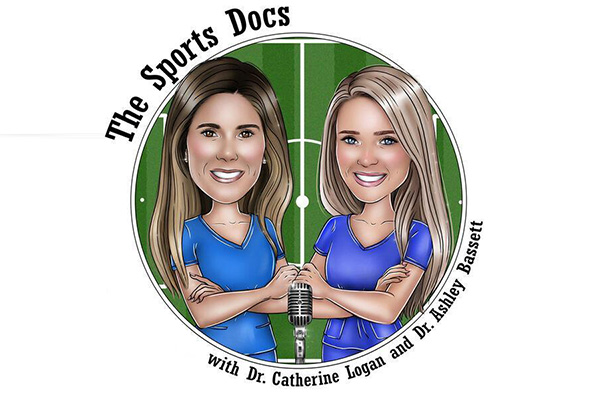
On this episode of The Sports Docs, Dr. Logan and Dr. Bassett chat about an article from this month's AJSM:
Association of the Psychological Response to the ACL-SPORTS Training Program and Self-reported Function at 2 Years After Anterior Cruciate Ligament Reconstruction
Background:
Psychological readiness to return to sport has emerged as an important factor associated with outcomes after anterior cruciate ligament reconstruction (ACLR). Psychological factors are potentially modifiable during the course of rehabilitation, and improving them may lead to better outcomes.
Purpose:
To determine whether athletes with a positive psychological response after participation in a neuromuscular training and second injury prevention program had better self-reported function and activity outcomes compared with athletes who did not have a meaningful change.
Study Design:
Cohort study; Level of evidence, 3.
Methods:
After ACLR and the completion of formal rehabilitation, 66 level I/II athletes completed the following self-reported measures at enrollment (pretraining): the Anterior Cruciate Ligament–Return to Sport after Injury (ACL-RSI) scale, the International Knee Documentation Committee (IKDC) subjective knee form, and the 5 subscales of the Knee injury and Osteoarthritis Outcome Score (KOOS). Participants completed these measures after 10 sessions of agility, plyometric, and progressive strength training and at 1 and 2 years after ACLR. Participants who displayed an increase in the ACL-RSI score from pretraining to posttraining that exceeded the minimal clinically important difference (≥10 points) were defined as having a positive psychological response (responders) to training, and those who did not were defined as nonresponders. A mixed-model analysis of variance was used to determine if group differences in IKDC and KOOS scores existed over the 4 time points (pretraining, posttraining, and the 1- and 2-year follow-ups).
Results:
The responders reported better self-reported function compared with the nonresponders, regardless of time, on the IKDC form (P = .001), KOOS–Sport and Recreation (P = .014), KOOS-Pain (P = .007), and KOOS-Symptoms (P = .002) but not on the KOOS–Quality of Life (P = .078). Overall, 77% of responders and 67% of nonresponders returned to their previous level of sport by 1 year after ACLR (P = .358), and 82% of responders and 78% of nonresponders returned to their previous level of sport by 2 years after ACLR (P = .668).
Conclusion:
Ultimately, 59% of the athletes in this study displayed a meaningful improvement in their psychological outlook over the course of the training program. Responders demonstrated persistently better self-reported function at posttraining and at 1 and 2 years after ACLR, but there were no between-group differences in return-to-sport rates.






